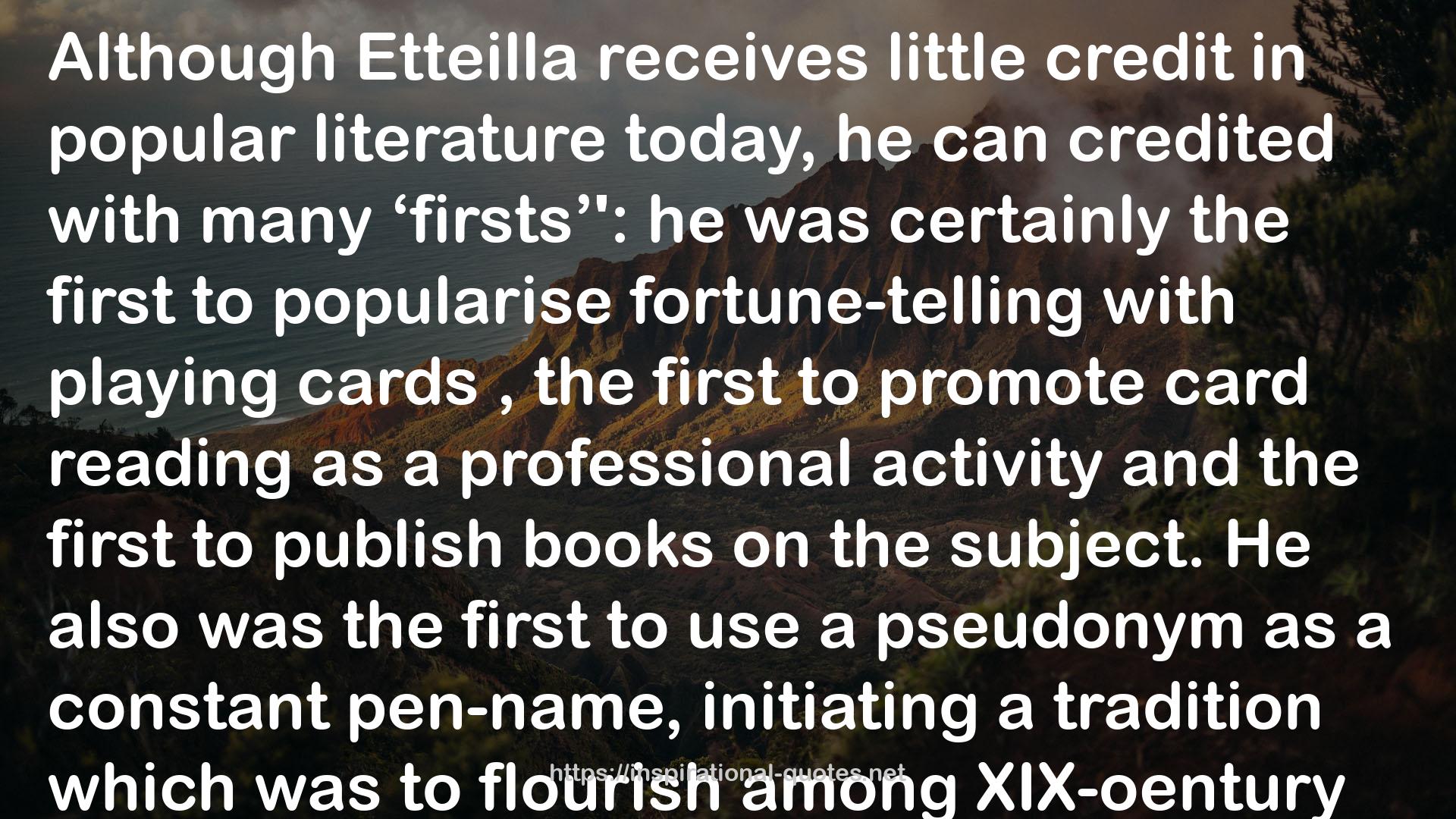" Although Etteilla receives little credit in popular literature today, he can credited with many ‘firsts’': he was certainly the first to popularise fortune-telling with playing cards , the first to promote card reading as a professional activity and the first to publish books on the subject. He also was the first to use a pseudonym as a constant pen-name, initiating a tradition which was to flourish among XIX-oentury esoteric writers, as the following chapters will abundantly demonstrate. Thanks to Etteilla, Court de Gébelin's theory about the 'Egyptian' origin of the Tarot had a wider diffusion and fortune-telling with Tarot cards became popular. He was the first. too, to attempt to incorporate Tarot cards into a system of magical theory: his example, though not his means of doing so, was to be followed by others whose infuence has persisted longer.
Last but not least, he can be credited too with the invention of the very word cartomancie, or rather of its forerunner, ‘cartonomancie', which appeared in his writings from 1782. Amazingly, one of his disciples was about to publish a book on 'cartomancie' in 1789 (the first occurrence of such a word in a European language), but as the book is now lost we only know it from Etteilla's very critical review, rejecting this quite new and ‘illogical’ word to which he opposed his ‘better’ cartonomancie. Nevertheless, cartomancie took hold and its use spread. In 1803, it entered de Wailly’s French dictionary, and from these it has found its way into alnost all European languages,
Jean-Baptiste Alliette died on 12 December 1791. He was only 53, which is, even in the XVIII century, a rather young age at which to die, We unfortunately know nothing of what he died of. Etteilla was a fascinating character and deserves more than giving his name to a strange Tarot pack. There is something touching in the man, who was sincere and passionate, generous and enlightened (in all the meanings of the word in the late XVIII century. "
― , A Wicked Pack of Cards: The Origins of the Occult Tarot
